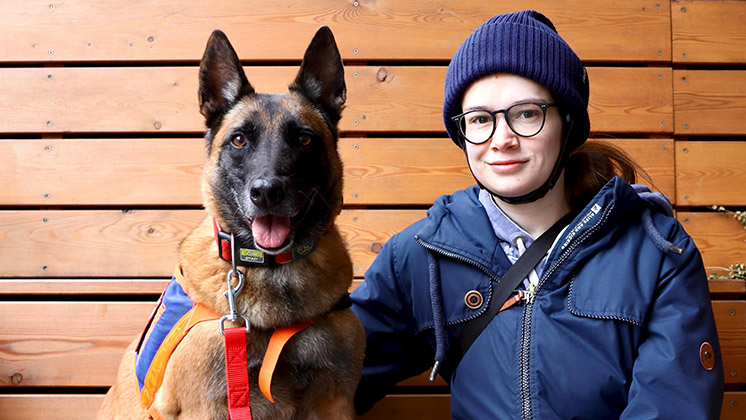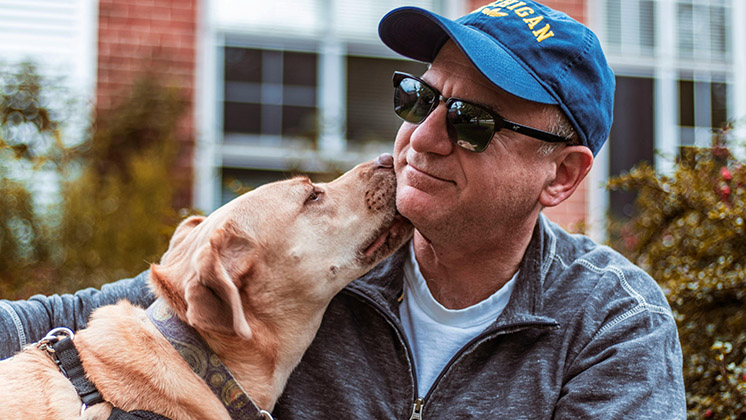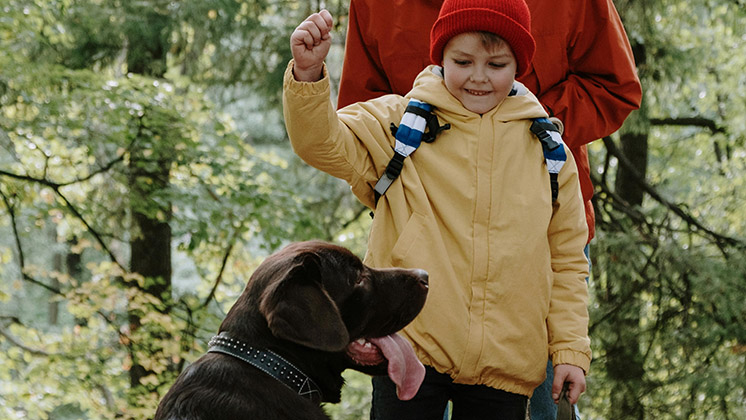The Healing Power of Assistance Dogs for Veterans with PTSD

Imagine a companion who not only shares your home but also helps you navigate the challenges of posttraumatic stress disorder (PTSD). For military veterans, psychiatric assistance dogs have become such partners, offering hope beyond conventional treatment. A recent comprehensive study reviewed the impact of these partnerships and found promising results. Let’s delve into how assistance dogs are transforming the lives of veterans dealing with PTSD.
Key Findings of the Study
The research, conducted as a systematic review, meta-analysis, and meta-synthesis assessed data from 41 studies, including peer-reviewed articles and dissertations, to gauge the impact of psychiatric assistance dogs on veterans with PTSD.
Here’s what stood out:
- Reduction in PTSD Severity: Across multiple studies, the partnership with assistance dogs significantly lowered PTSD symptoms. A meta-analysis revealed that the presence of these dogs correlated with a clinically meaningful decrease in PTSD severity scores, indicating substantial relief for the veterans involved.
- Enhanced Mental and Social Health: Veterans reported not just symptom relief but also improved emotional well-being and better social engagement. The dogs helped veterans manage hypervigilance, anxiety, and emotional regulation, fostering a sense of safety and companionship.
- Mixed Outcomes for Physical Health: While the study highlighted positive changes in mental health, physical health outcomes were less consistent. Though improvements in sleep and activity levels were noted in self-reports, objective measures often showed mixed results.
- Impact Beyond the Individual: Assistance dogs acted as “social bridges,” aiding veterans in reconnecting with loved ones and integrating more comfortably into their communities. However, challenges such as public attention and care-related stress were also reported.
Significance of These Findings
These results underscore the therapeutic potential of psychiatric assistance dogs as a complementary intervention for PTSD. Unlike medication or traditional psychotherapy, these dogs provide round-the-clock support, fostering resilience and reducing isolation. Yet, this isn’t a one-size-fits-all solution. The effectiveness varies, and these partnerships are most beneficial as part of a broader treatment plan.
Challenges and Future Directions
Despite the positive outcomes, gaps remain. Studies showed variability in the training and certification of dogs, raising questions about consistency and long-term effects. Moreover, the emotional toll of caring for an assistance dog and facing their eventual loss are concerns that require better preparation and support for handlers.
To truly understand the potential of psychiatric assistance dogs, more research with randomized controlled trials is needed. This will help establish their role as a proven intervention option and identify which types of PTSD symptoms are best addressed through such partnerships.
Conclusion
Psychiatric assistance dogs are emerging as valuable allies for veterans facing PTSD, offering both practical assistance and emotional support. While these partnerships can transform lives, they work best as part of a multifaceted approach to health care. As we deepen our understanding of these bonds, there’s hope that more veterans can find a pathway to recovery with their four-legged companions.
Read the Research Paper
This article was based on the research of Dr. Leanne Nieforth and the HAPI lab. Read the research:
Suggested Articles

Horses, Healing, and Inclusivity in Mental Health Education
Discover how equine-assisted services like those at The HERD Institute are transforming mental health and education through inclusive, relationship-centered practices that emphasize diversity, equity, and belonging.
Read more
How Service Dogs Help (and Challenge) Caregivers
Discover how mobility and medical alert service dogs impact caregivers, offering emotional support and stress relief but also introducing challenges like maintenance and travel, as revealed in this insightful study.
Read more
Exploring Canine-Assisted Interactions for Children with ADHD
Discover how canine-assisted interventions, paired with cognitive behavioral therapy, enhance social skills in children with ADHD, fostering better human interactions and engagement.
Read more
